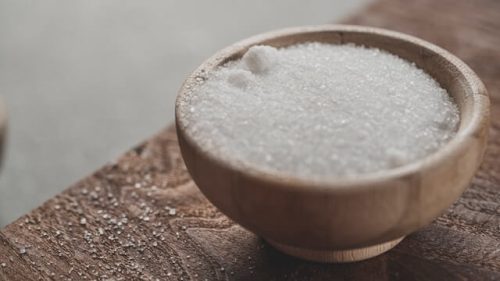Salt is a vital nutrient that plays a crucial role in keeping our bodies running smoothly, from maintaining fluid balance and blood pressure to supporting nerve function. If you’re on a low-carb diet, it’s especially important to keep an eye on your salt intake to maintain a proper electrolyte balance. But how can you tell if you’re getting too much salt, and how can you avoid an electrolyte imbalance? Here’s the lowdown (and if you want all 7 of our tips on supercharging your low-carb diet and reaching your weight-loss goals, check out this article!):
Salt’s Superpowers in Your Body
Salt, or sodium chloride, is an essential mineral that’s involved in many important bodily functions, such as:
- Balancing fluids: Salt helps regulate the amount of water in and around our cells, which is crucial for maintaining blood volume and preventing dehydration.
- Controlling blood pressure: Salt intake can influence blood pressure, with high levels potentially leading to increased blood pressure in some people.
- Aiding nerve function: Sodium ions are key for nerve transmission and muscle contractions.
How Much Salt is Just Right?
For adults, the recommended daily salt intake is 2,300 milligrams (mg). However, individual needs can vary based on factors like age, gender, activity level, and overall health. In certain situations, like during hot weather or intense exercise, you might need more salt to keep your electrolyte balance in check.
Keeping Electrolyte Imbalance at Bay
An electrolyte imbalance can happen when there’s an uneven distribution of electrolytes in your body, including sodium, potassium, magnesium, and calcium. This can lead to symptoms like muscle cramps, headaches, and fatigue. To avoid an electrolyte imbalance while following a low-carb diet, try these tips:
- Add more salt: On a low-carb diet, you might need to up your salt intake to maintain your electrolyte balance. Add a pinch of salt to your meals or sip on some bone broth to boost your sodium levels.
- Go for potassium-rich foods: Potassium is a key electrolyte that can help balance sodium in your body. Add potassium-packed foods to your meals, such as leafy greens, avocados, and nuts.
- Consider magnesium supplements: Magnesium is an essential mineral that’s crucial for muscle function and electrolyte balance. If your diet is lacking magnesium, think about taking a magnesium supplement.
- Hydrate, hydrate, hydrate: Drinking plenty of water and other calorie-free beverages can help maintain electrolyte balance by flushing out excess sodium and other electrolytes.
The Takeaway
Salt is an essential nutrient that plays a key role in many aspects of our health. When you’re on a low-carb diet, it’s even more important to pay attention to your salt intake and maintain electrolyte balance. By upping your salt intake, eating potassium-rich foods, supplementing with magnesium, and staying hydrated, you can avoid electrolyte imbalances and keep your body feeling its best. And remember, it’s always a good idea to check with a healthcare professional before making any major changes to your diet or supplement routine.



